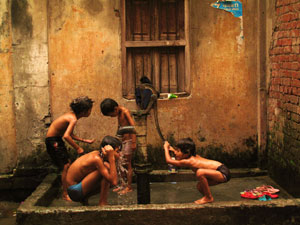- Membership
- Perks and Discounts
- Things To Do
- Resources
- News
- About
- Shop
Related Content
‘A Compelling Project for Good’
March 8, 2024
When Irving Hoffman ’94 (MPH), director of international operations for the Institute for Global Health...
Read MoreTEACCH Your Children Well
Jan. 8, 2024
A program created at Carolina decades ago revolutionized care and services for kids with autism...
Read MoreAI in the Time of the End
Nov. 16, 2023
Carolina philosophy professor Thomas Hofweber founded the UNC AI Project to try to answer difficult...
Read More-
2024
-
2023
-
2022
-
2021
-
2020
-
2019
-
2018
-
2017
-
2016
-
2015
-
2014
-
2013
-
2012
-
2011
-
2010
-
2009
-
2008
-
2007
-
2006
-
2005
-
2004
- Academics and Athletics
- Admissions
- Alumni Profiles
- Alumni Recognition
- Around Town
- Arts
- Books
- Campus Profile
- Campus Safety
- Carolina Alumni Awards
- Carolina Alumni Leadership
- Carolina Alumni Programs and Outreach
- Carolina Alumni Reunions
- Carolina Alumni Review
- Celebrations
- Championships
- College and Costs
- Commencement
- Coronavirus
- Discovery
- Extracurricular
- Faculty
- Faculty Awards
- For the People
- Go Heels
- Greek Life
- Hark the Sounds
- Higher Education
- Homecoming
- In Class
- In Memoriam
- Innovation and Technology
- Issues
- Object Lesson
- On View
- Our Treescape
- Philanthropy
- Podcast
- Public Service
- Race and Reckoning
- Research
- Sexual Assault
- Silent Sam
- Sports
- Structures
- Student Achievement
- Students
- Timelines
- Tuition and Financial Aid
- UNC Libraries
- UNC’s History
- Undergraduate Spotlight
- University Achievements
- University Awards
- University Budget Issues
- University Development
- University Leadership
- University News
- University Rankings
- What We Do
- Who We Are
- Young Alumni
- Yours at Carolina
Scientists’ Report Calls for Emphasis on Water, Hygiene

The World Health Organization and UNICEF have commissioned the first comprehensive, multinational analysis on water, sanitation and hygiene services in health care facilities, calling for global action to push toward 100 percent coverage of these services through new policies, collaboration, monitoring and training.
The report’s authors are:
- Jamie Bartram, director of UNC’s Water Institute and the Don and Jennifer Holzworth Distinguished Professor in the department of environmental sciences and engineering; and
- Ryan Cronk ’13 (MS), a doctoral student in environmental sciences and engineering.

The winning photograph, Pump, in the UNC’s Water Institute’s photo contest in 2011 was taken in Utter Pradesh, India, by Niharika Bhattarai.
The report is available online.
They evaluated available WaSH data from 66,101 health care facilities in 54 low- and middle-income countries and found that 38 percent of those facilities lack an improved water source, 19 percent lack improved sanitation and 35 percent lack soap for hand washing — situations that impede even basic health care services, such as child delivery.
“It is shameful that there are health care facilities failing to provide a safe environment, compromising the health of those who turn to them for care,” Bartram said. “We need health care professionals — from the health worker in charge of the smallest health post to the CEO of the most sophisticated hospital — to take responsibility for delivering on the medical maxim ‘first do no harm.’ ”
The report says:
- Lack of water, sanitation and hygiene services in health care facilities causes infection risk within the very institutions where patients, expecting to be healed, have come;
- Without WaSH services, patients are put at unnecessary risk of infection and often have to leave the facility to get a drink of water or to relieve themselves;
- These conditions mean staff members lose an opportunity to demonstrate safe sanitation and hygiene practices that can improve community habits and health; and
- Improvements to services can and should begin immediately, but they require leadership from the health sector, technical advice from water and sanitation experts, and political commitment from governments.
© 2024 Carolina Alumni
